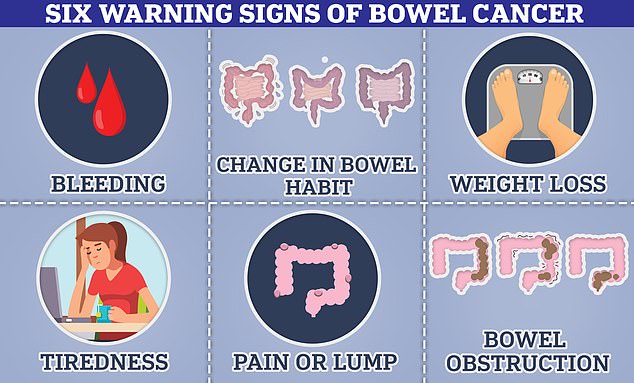Share this @internewscast.com
One of the UK’s best-known diet experts has urged the public to adopt a little-known nutrition hack that could ward off cancer.
Professor Tim Spector, a scientist and founder of the well-known ZOE diet app, suggests that ‘fibremaxxing’ might significantly lower the likelihood of disease development.
This trend involves loading every meal with fibre, a type of carbohydrate found in plants that aids in digestion and offers protection against bowel cancer.
The nutrient is also known to help prevent heart disease and curb hunger pangs, aiding weight loss.
In an Instagram video, which has already garnered over 150,000 views, Prof Spector guides viewers through creating a fibre-rich lunch featuring cannellini beans, charred corn, avocado, and tortilla chips.
‘If you’re going to hop on one new trend this year, let it be this one,’ he said in the voiceover, adding that the foods in his clip are linked to lower risk of ‘heart disease, type 2 diabetes and even some cancers’.
One cup of cannellini beans combined with red onion, a corn on the cob, half an avocado and five corn tortilla chips, as per Prof Spector’s recipe, contains around 25g of fibre—80 per cent of your recommended daily intake.
‘Fibremaxxing is all about squeezing more fibre into every meal and your gut microbes will thank you for it,’ he explained.
‘Aim for variety. ‘Your gut microbes thrive on diversity.’
Other examples of high fibre foods include nuts, seeds, fruits, vegetables and wholegrain cereals.
Unlike other carbohydrates, fibre isn’t easily broken down in the gut and absorbed by the body.
Rather, it travels down the gut, through the intestines, aiding digestion and preventing constipation, helping to flush out harmful toxins within the digestive tract.
Research by nutrition experts at the University of Otago, New Zealand, suggests that people who eat between 25-29g of fibre a day see a 15-30 per cent reduced risk of bowel cancer.
Researchers concluded: ‘It is the availability of fibre in the diet that leads to protection from conditions such as colorectal cancer.’
Bowel Cancer UK estimates that a lack of fibre is behind 28 per cent of all cases in the UK.
Meanwhile, just nine per cent of adults hit the recommend 30g a day, studies suggest.

Bowel cancer can cause blood in the stool, changes in bowel habits and unexplained weight loss
Over the last 30 years, young diagnoses of the disease have shot up by 80 per cent across the globe.
In the UK, the disease kills nearly 17,000 people a year.
While the vast majority of cases still occur in over-50s, around five per cent now affect adults aged 25 to 49—and that figure is steadily climbing.
Cancer Research UK estimates that more than half—54 per cent—of bowel cancer cases in the UK are preventable.
Common symptoms include changes in bowel movements, such as diarrhoea or constipation, needing or feeling the need to empty your bowels more or less frequently, blood in the stool, fatigue and unexplained weight loss.
Abdominal pain, bloating and vomiting are tell-tale signs that cancer has caused an obstruction which requires immediate medical attention.
Known risk factors include a diet low in fibre, eating too much red or processed meat, and obesity.










